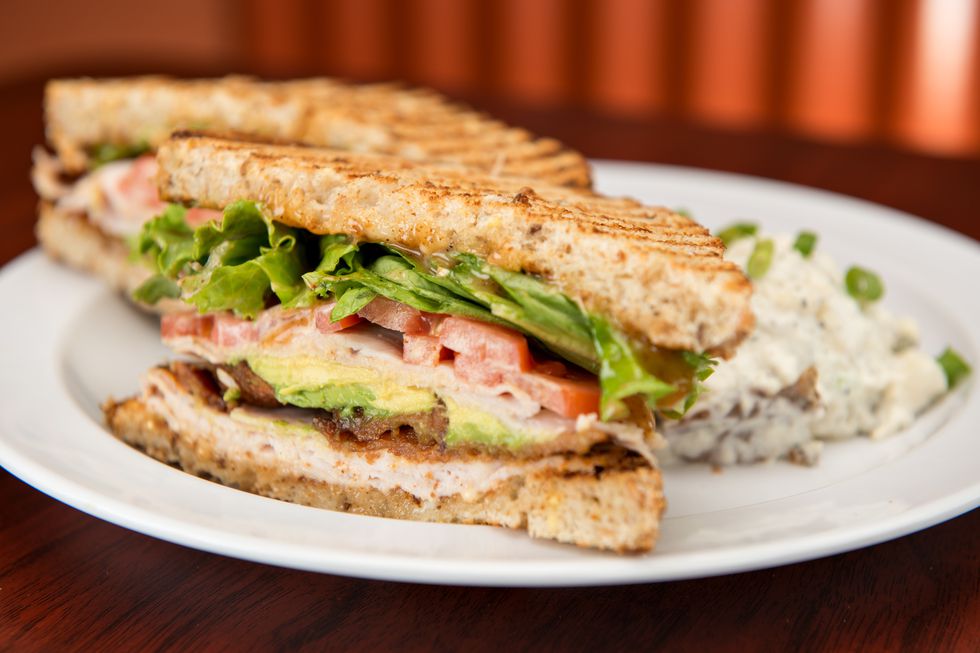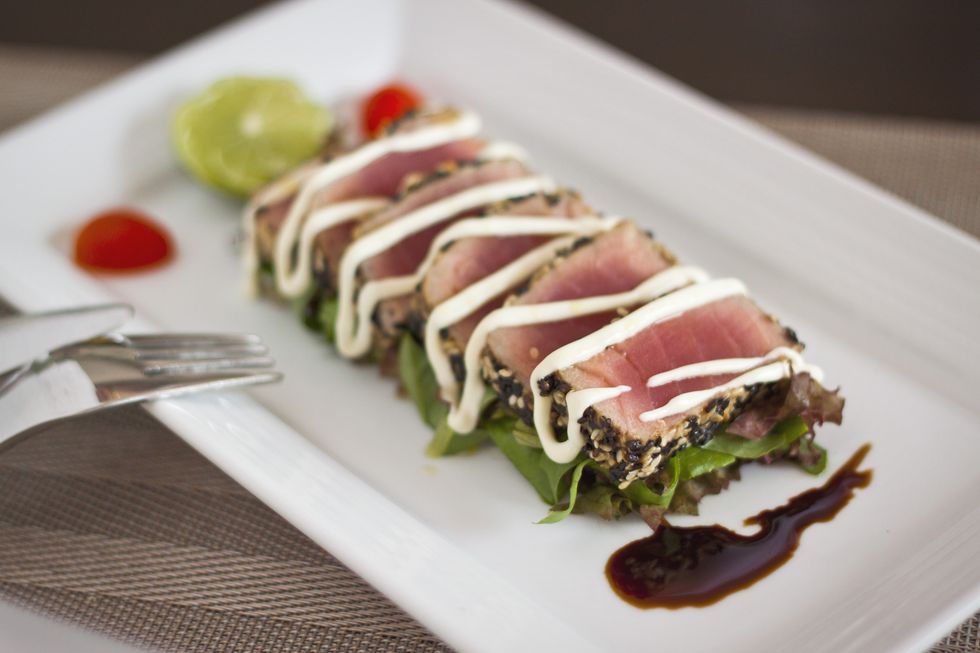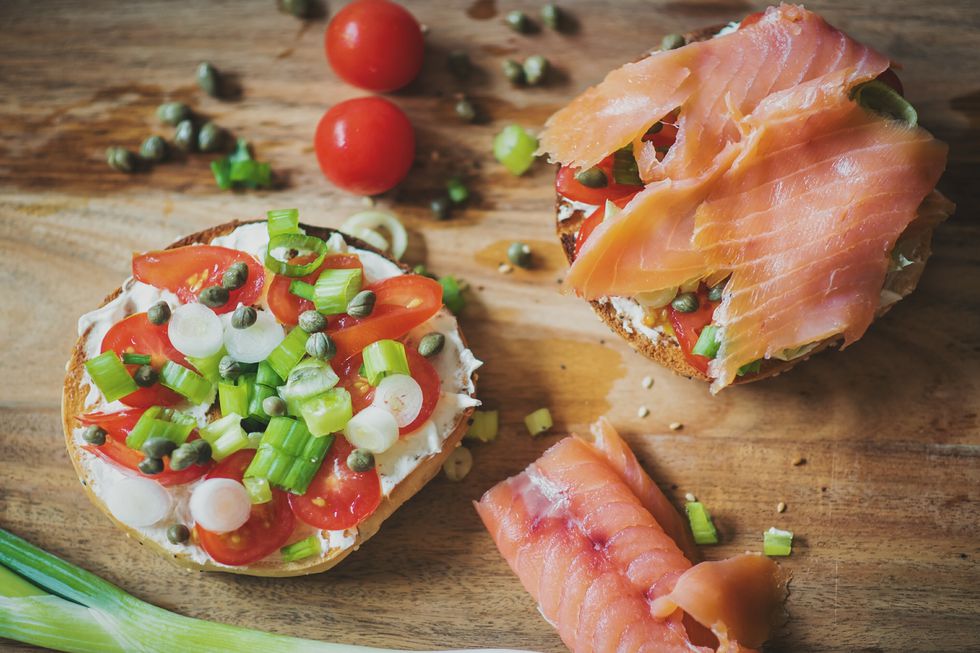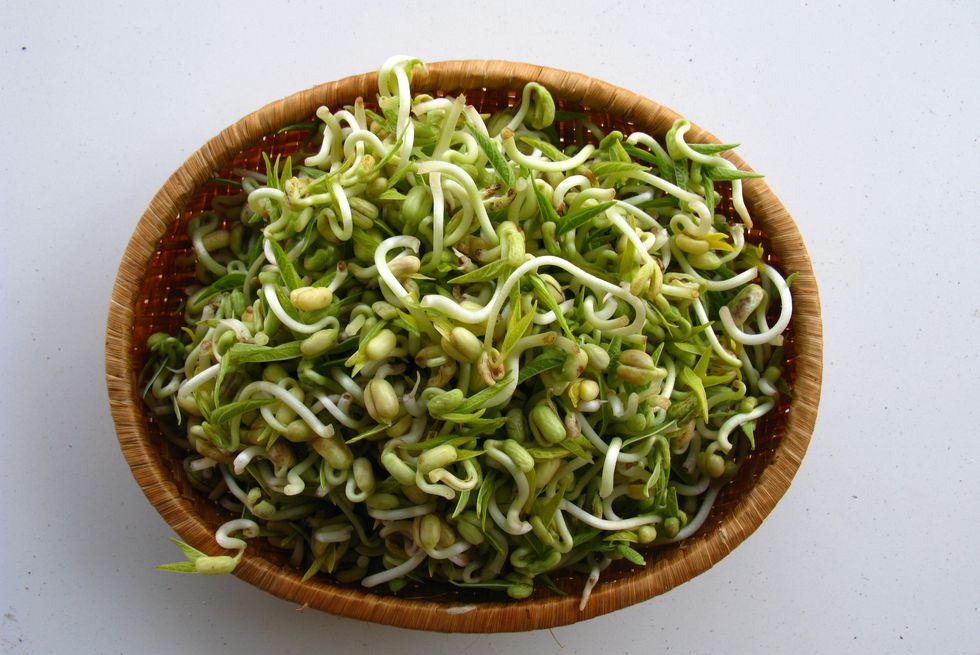When you’re pregnant, it makes sense that you’d want to pay closer attention to what you put in your mouth. After all, the food you eat goes to your baby, too.
“We are what we eat, and what we eat is going to make that baby,” says Liz Weinandy, RD, a registered dietitian who works with pregnant patients at The Ohio State University Wexner Medical Center. “The choices that the mom makes during pregnancy can have lifelong effects for the baby.”
While eating a quality, balanced diet (or, as good of a diet as you can manage with morning sickness) is key, there are also certain foods you should avoid for your health and the health of your baby. Take a solid pass on these for the next nine months.
Deli meat

Deli meat can carry listeria, the bacteria that can cause a disease called listeriosis. Symptoms of listeriosis include fever, headache, stiff neck, and diarrhea, says Christine Greves, MD, a board-certified ob-gyn at the Winnie Palmer Hospital for Women and Babies. Listeria is especially dangerous for pregnant women because it can lead to miscarriage, stillbirth, premature delivery, or a life-threatening infection of your baby, the Centers for Disease Control and Prevention (CDC) says. If you can’t live without your daily chicken sandwich, try cooking a chicken breast and slicing it up yourself.
Unpasteurized cheese

In case you’re not familiar with it, pasteurization is a process that uses heat to destroy pathogens in foods. Most cheeses sold in the United States are pasteurized before they reach you, but plenty of important cheeses—especially soft cheeses—aren’t, points out women’s health expert Jennifer Wider, MD. Unfortunately, those cheeses are also at a higher risk of carrying listeria, which again, can make you and your baby very sick. So, read labels when it comes to buying cheese: It should say on the package if it’s pasteurized, Weinandy says.
Raw or undercooked meat and seafood

Raw or undercooked meat, like medium-rare steak or sushi, comes with a risk of salmonella poisoning. Salmonella causes about 1.2 million illnesses, 23,000 hospitalizations, and 450 deaths in the United States annually, according to the CDC. It can cause diarrhea, fever, and stomach cramps. Pregnant women are more likely to have a severe reaction to a salmonella infection, and the bacteria itself can affect the baby, Weinandy says. Given that salmonella can cause severe diarrhea, it can also lead to dehydration, which could cause your uterus to start to contract prematurely, Weinandy says. Bottom line: You don’t want to take a risk with this.
Certain types of fish

Fish like marlin, tilefish, bigeye tuna, king mackerel, swordfish, and shark have high levels of mercury and should be avoided when you’re pregnant, Dr. Greves says. Here’s why: Mercury exposure can cause damage to your baby’s central nervous system, and can lead to motor, mild intellectual, and psycho-social impairment, she says. That doesn’t mean you need to avoid seafood altogether—just make sure to opt for choices that are low in mercury or other contaminants, Dr. Greves says. Salmon and sardines tend to be good choices because they’re high in omega-3 fatty acids and low in mercury, Weinandy says.
Smoked seafood

Just like deli meat, smoked seafood can harbor listeria, Wider says. If you love eating fish, try looking for a low-mercury options and cooking it yourself at home. Sure, it’s not totally the same, but it can greatly lower your risk of getting sick.
Undercooked eggs

Salmonella is the big concern here, Dr. Greves says. Keep in mind that it’s not just runny eggs you have to look out for, but egg products as well, Wider says. Caesar salad dressing, eggnog, and even certain homemade ice creams can contain raw or undercooked eggs.
Raw sprouts

Mung bean and alfalfa sprouts are healthy foods, but they can also harbor bacteria like salmonella, Weinandy says. “Avoid sprouts,” she says. “Those are a high risk for contamination.”
If you happen to eat unpasteurized cheese, or accidentally ate some deli meat, don’t panic. You’ll probably be just fine. “Just look for signs and symptoms of illness and, if you feel like you’re getting sick go to the doctor right away,” Weinandy says.












